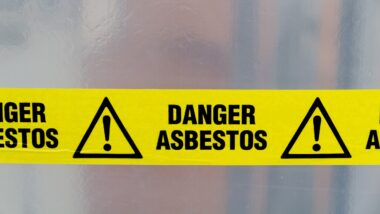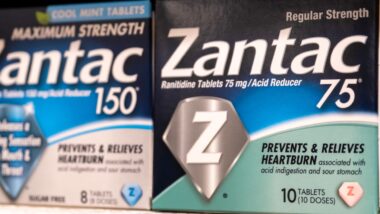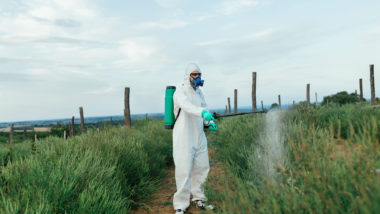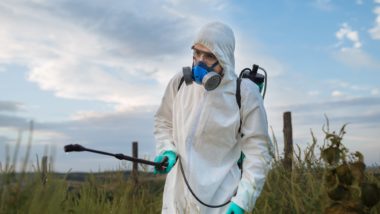Top Class Actions’s website and social media posts use affiliate links. If you make a purchase using such links, we may receive a commission, but it will not result in any additional charges to you. Please review our Affiliate Link Disclosure for more information.
According to recent findings from the Environmental Protection Agency, the chemical glyphosate may be harmful to endangered or at-risk plants and animals as well as Roundup allegedly causing certain cancers.
EPA Findings Highlight Glyphosate Dangers
In November 2020, the EPA released a draft Biological Evaluation which included details regarding the risks that the pesticide glyphosate may pose to endangered plants, animals, and habitats. Glyphosate is a weed killer commonly used by commercial crop growers, landscapers, parks workers, and gardeners. However, many consumer and environmental advocates claim that the pesticide may be harmful to humans, plants, and animals. Roundup, a popular brand of weed killer containing glyphosate, has been the subject of thousands of lawsuits filed by victims who claim the product caused them to develop cancer or other adverse health effects.
The EPA evaluation was conducted with input from the U.S. Fish and Wildlife Service, the National Marine Fisheries Service, and the U.S. Department of Agriculture, as well as input from federally recognized tribes and the National Research Council of the National Academy of Sciences. In early 2020, the EPA changed the way that the agency evaluates the risks of pesticides. Now the agency uses data regarding how pesticides are actually used, rather than conducting analysis on how the products are supposed to be used.
The EPA found that glyphosate exposure is likely to negatively affect approximately 93% of all the plants and animals included in the research. Additionally, the habitats of these plants and animals are also likely to be negatively affected, with 96% of them estimated to be harmed by the pesticide.
Although the EPA, in contrast with the World Health Organization, has declined to classify glyphosate as a potential human carcinogen, the recent findings indicate that regardless of the substance’s effect on humans, it is likely to harm the environment. As approximately 280 million pounds of glyphosate are applied to crops, forests, roadsides, and lawns each year, countless plants and animals may be at risk of glyphosate dangers including health concerns or death.
 How Can Glyphosate Harm Plants and Animals?
How Can Glyphosate Harm Plants and Animals?
The glyphosate dangers posed to plants are due to the pesticide’s ability to inhibit an enzyme needed for growth. After chronic exposure to the substance, plants may experience cell death and be unable to continue to grow. The ability of glyphosate to inhibit the growth of plants is why the substance has become the most popular weed killer in the world. However, while its potency may be valuable when it comes to removing weeds and pests from crops, it may end up wreaking havoc on natural ecosystems and wildlife.
Glyphosate may also be harmful to animals. Animals who ingest the substance after it has been sprayed on crops, or consume contaminated water or food may experience reduced body weight and damage to the internal organs. These negative health consequences may be worse if the animal is exposed to low levels of glyphosate over a long period of time, or a high level of glyphosate at once. Animals that have been exposed to glyphosate in scientific studies have developed negative side effects including tumors, neurodegeneration, and sluggish behavior.
Although the EPA and the World Health Organization differ on whether glyphosate is likely to cause cancer in humans, many long term users of the substance claim that it caused them to develop non-Hodgkin’s lymphoma. Many victims have filed lawsuits against Bayer and Monsanto, the owners of Roundup, due to these potential glyphosate dangers. If you have frequently used Roundup for gardening, landscaping, or farming, and have developed non-Hodgkin’s lymphoma, you may be eligible to speak with an experienced attorney about your legal rights. Some victims may be able to file a class action lawsuit against the manufacturers of the weed killer and pursue compensation for their medical expenses and injuries.
ATTORNEY ADVERTISING
Top Class Actions is a Proud Member of the American Bar Association
LEGAL INFORMATION IS NOT LEGAL ADVICE
Top Class Actions Legal Statement
©2008 – 2024 Top Class Actions® LLC
Various Trademarks held by their respective owners
This website is not intended for viewing or usage by European Union citizens.
Get Help – It’s Free
Join a Roundup Weed Killer Cancer Class Action Lawsuit Investigation
For the most up-to-date information on this case, click here.


 How Can Glyphosate Harm Plants and Animals?
How Can Glyphosate Harm Plants and Animals?










